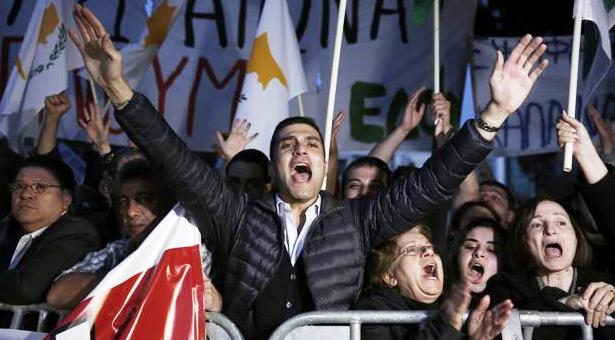The Cypriot parliament unanimously rejected the special tax on deposits that had been demanded by the EU and the IMF as a condition for an emergency credit. The parliament reacted in this way to the massive discontent of the population. In addition, the decision seems to influenced by the fact that the deal between the […]

The Cypriot parliament unanimously rejected the special tax on deposits that had been demanded by the EU and the IMF as a condition for an emergency credit. The parliament reacted in this way to the massive discontent of the population. In addition, the decision seems to influenced by the fact that the deal between the EU and Cypriot government that had been struck at the weekend already has shaken the Cypriot financial system and its economic model to the foundations. Therefore, the range of options de facto has broadened. The Cypriot government immediately started to look for alternative funding and contacted the Russian government. Russian (and Ukrainian) business has invested considerable funds in the “tax paradise” Cyprus. The Russian government already provided a 2.5 bn euros credit in the past in order to alleviate Cyprus’ financial problems.
The negotiations with Russia could give the Cypriot government extra leverage in the negotiations with the EU. It could try to negotiate a better deal. However, the German government seems to be very unwilling to make any concessions to Cyprus. The German Minister of Finance, Wolfgang Schäuble, declared Tuesday evening:
We took sufficient precaution so that today’s decision in Cyprus will not have negative consequences for the rest of the euro zone.”
This is a clearly uncompromising stand. The German government which plays a predominant role in the EU and had pushed for a hard line against Cyprus is obviously not prepared to accept anything short of a full-scale capitulation of the Cypriot government and parliament. Implicitly, it seems to be prepared to accept a Cypriot exit from the euro zone. For the moment, the EU seems to keep open the options. The ECB declared to continue to provide funding to Cyprus.
The Cypriot government could look for Russian funding as a solution outside the euro zone as well. The Russian government could have an economic and political interest in making a deal with the Cypriot government. Such a deal would be advantageous for Russian business with interests in Cyprus. The Cypriot government might offer Russia – in one way or another – a stake in future gas field exploitation in Cypriot waters. In the longer run, that might lead to closer political/military cooperation in the East Mediterranean. Given the war in Syria and the weakening of Russia’s traditional ally in Damascus, a well disposed Cypriot government might not be without interest for Russia. A separate deal might eventually be linked to exiting the euro zone (or even the EU). This would be technically very difficult and certainly produce massive economic and social problems in the short. Due to the oversized Cypriot banking sector and the openness of the Cypriot economy, exiting the euro zone would not be an easy option. However, it has clearly become a real option.
The euro zone clearly has reached a watershed.